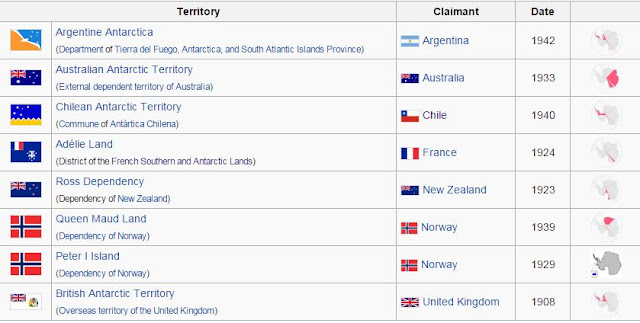Traditionally,
the poor in raw materials countries of Southern Europe, were turning to Africa for resources. France ,
Italy , Spain , Portugal ,
but also England and the Netherlands , had established colonies in Africa , in order to exploit their vast resources. Germany did not have the time to do so, because
she was created as a nation in 1871, and her tremendous rise made the English,
the French and the Russians to leave their differences aside, and destroy Germany
Even today
the countries of Southern Europe are getting most of their raw materials from
Africa, and they are terrified to see China
Picture 1
At the following
map you can see the islands controlled by France
Picture 2
At the
following map you can see the islands controlled by England
Picture 3
There are 7 nations that have
official claims over Antarctica i.e. Chile ,
Argentina , Australia , New
Zealand , which are countries near Antarctica, and England , France
and Norway Australia and Norway
Picture 4
At the
following Wikipedia table you can see the 7 countries that have official claims
over Antarctica .
Picture 5





Δεν υπάρχουν σχόλια:
Δημοσίευση σχολίου